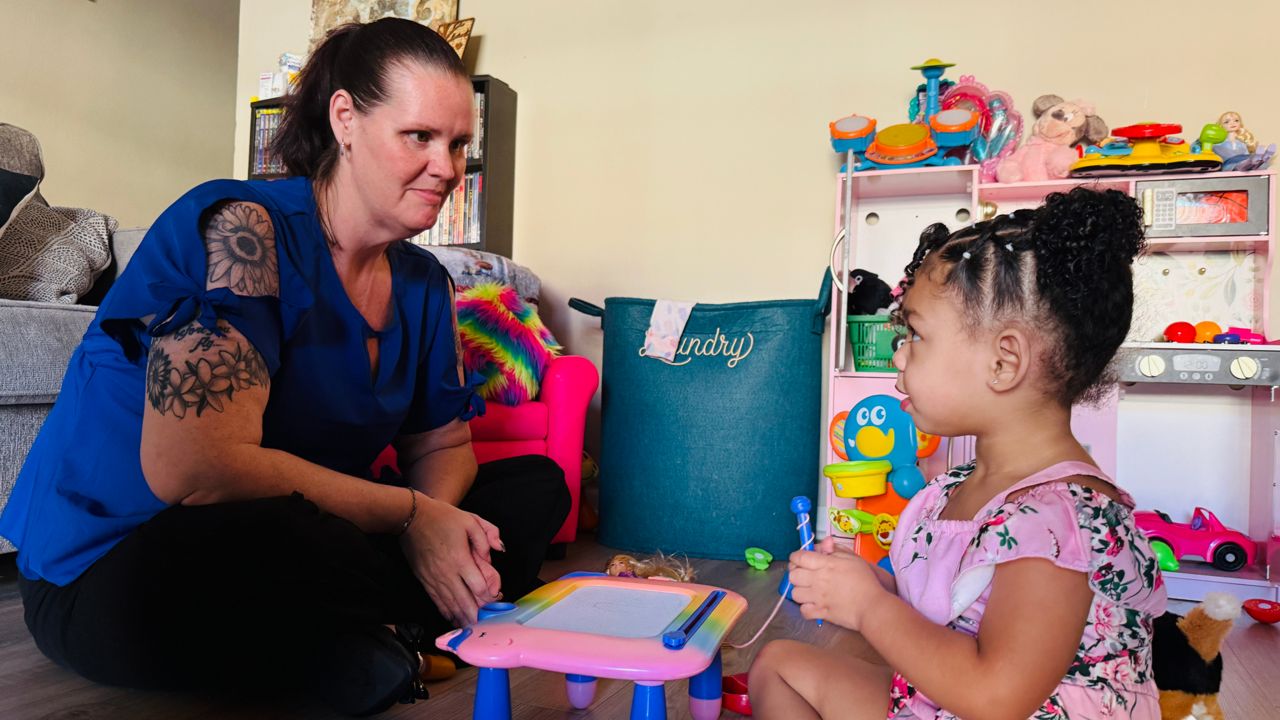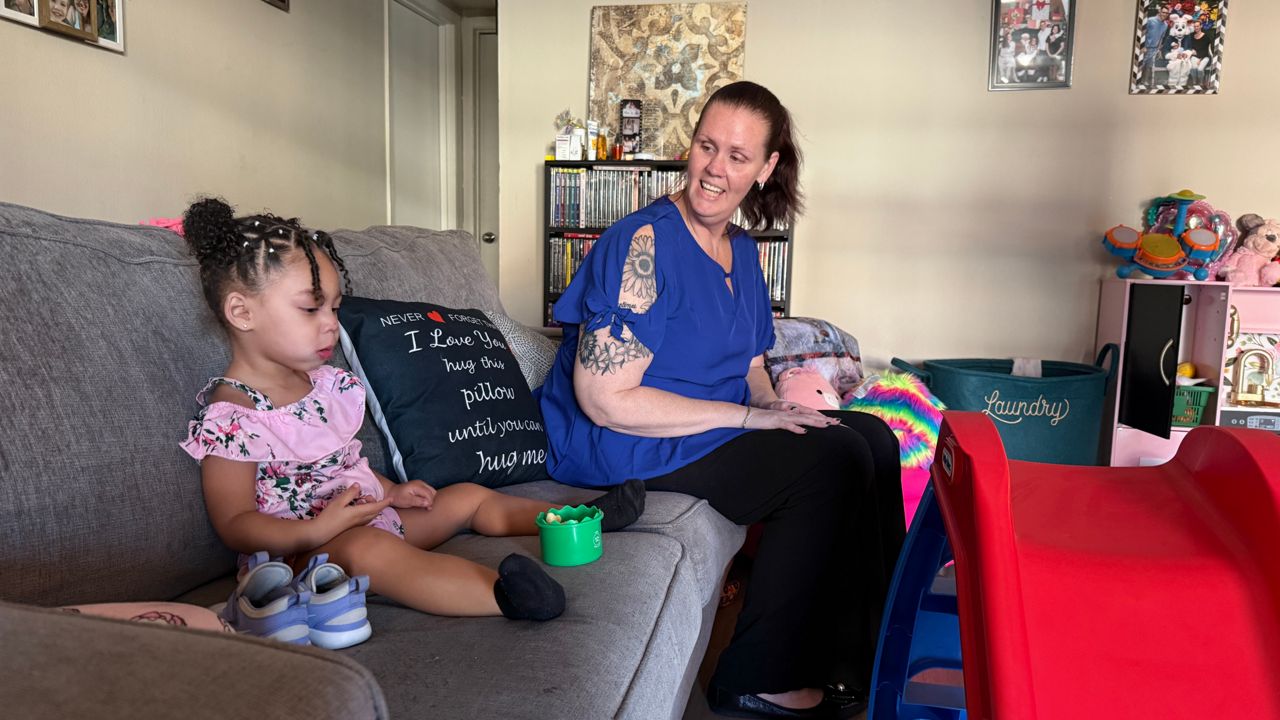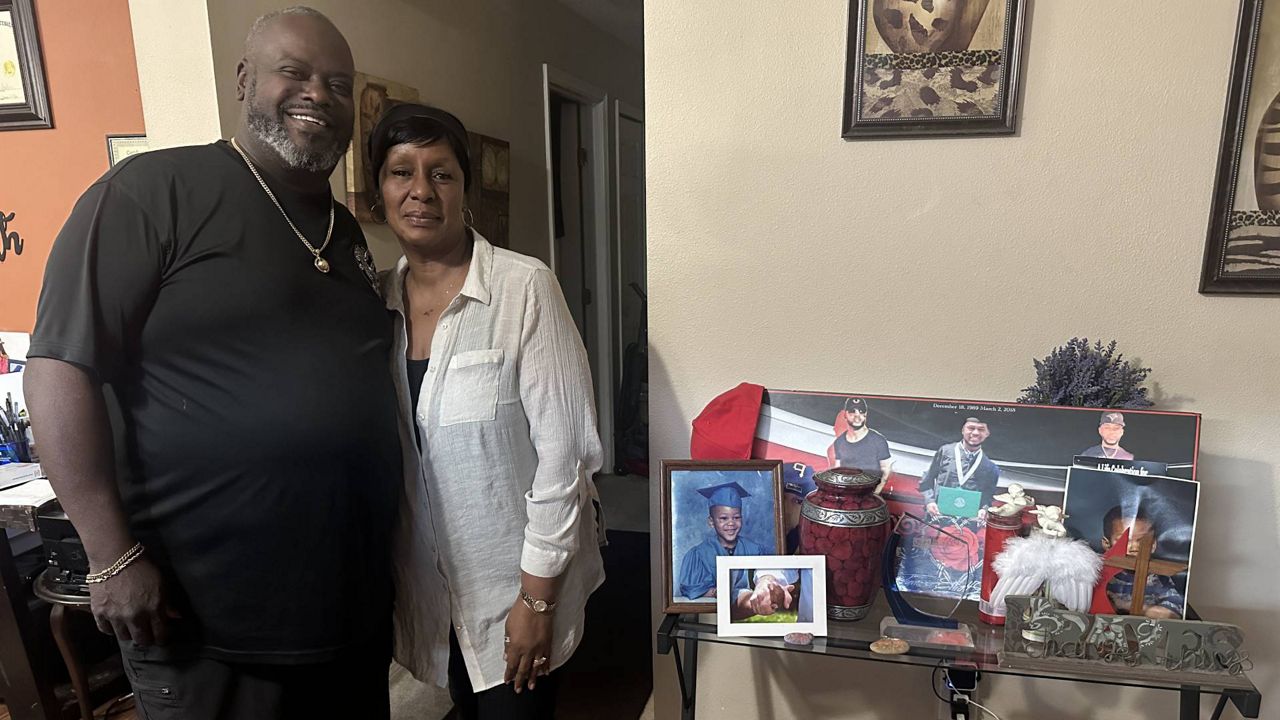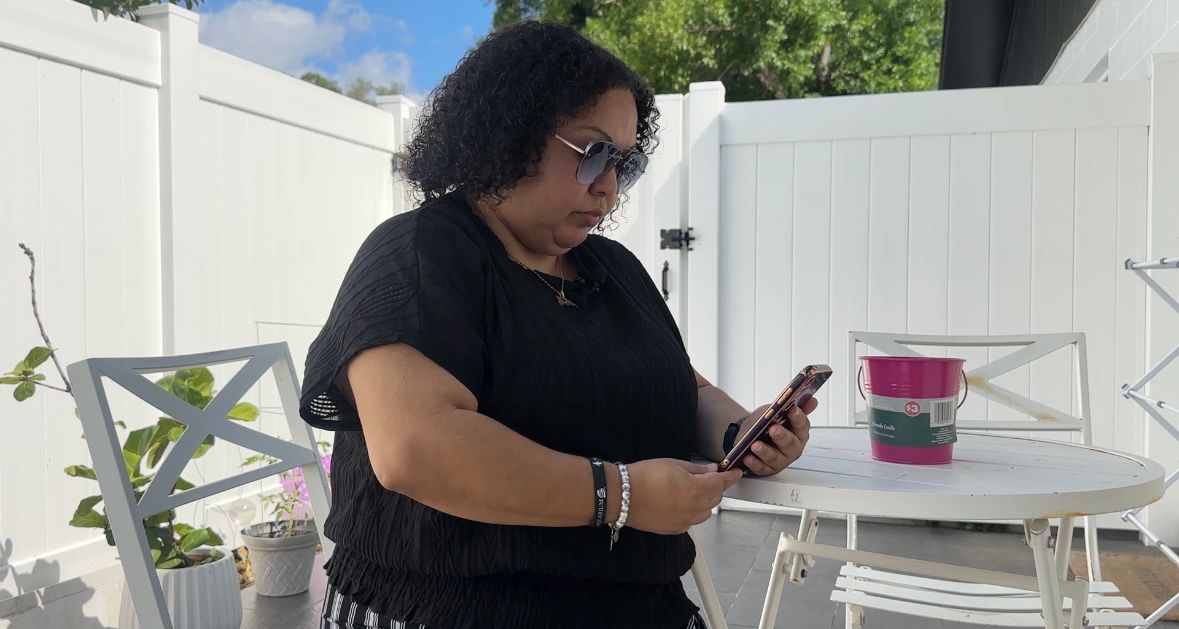ST. PETERSBURG, Fla. — Our happiest moments in life are said to be worth the wait.
Karla Grimmett, 38, knows about the wait and the weight.
“From the age of 11, I was told that I would never have kids because I have Polycystic Ovarian Syndrome. And then, of course, I was overweight," said Grimmett.
She was very overweight, her doctor said at a morbidly obese level.
“My whole life I've been overweight," said Grimmett. "It runs in my family.”
Her heaviest was 380 pounds. Her breaking point was when the weight landed her in the hospital with undiagnosed type 2 diabetes.
“I didn't want to be injecting myself for the rest of my life. So that's when I started looking into the gastric bypass," said Grimmett.

Karla turned to Orlando Health Bayfront Hospital and its Weight Loss and Bariatric Institute, where she met Dr. Alexander Ramirez.
She was a candidate for gastric bypass surgery, which she got done in November 2021.
Immediately following the surgery, the weight fell away.
“I no longer have diabetes. High blood pressure, high cholesterol, like all that stuff is gone,” said Grimmett.
She also had a regular menstrual cycle for the first time in her life. She never expected that surgery would lead to an unexpected pregnancy.
Grimmett admits her first reaction to being pregnancy was shock, and then quickly following, worry.
“I was like, ‘Am I going to be able to eat enough to, you know, get the nutrition?’ There were just so many things that crossed my mind. I was so afraid that I was going to miscarry or, you know, she was going to be a stillbirth, or she was going to be extremely underweight,” said Grimmett.

She was right to worry. It can be dangerous getting pregnant so soon following weight loss surgery.
“Our recommendation is to wait until 18 months after bariatric surgery to get the ultimate results, and then it's going to be safer to have that pregnancy," Ramirez said.
Grimmett's pregnancy was not an easy one. She even went into labor five weeks early.
Grimmett worried something would be wrong with her little girl.
“She came out screaming, hollering, like she didn't have to go to the NICU," Grimmett said with a big smile.
Little Everleigh was born six pounds, 18.5 inches long and in perfect health.
“I didn't realize what I was really missing until I got her," said Grimmett.
Her new, healthier life now holds more meaning and happiness. But she also wants to encourage and caution those who turn to bariatric surgery to help with fertility issues.
Ramirez says bariatric surgeries can lead to immediate increased fertility.
"It's not just for females, but for males as well. After they start losing weight, the estrogen levels are going to decrease and testosterone levels are going to increase," said Ramirez.
Grimmett wants others to learn from her story, and to get pregnant only after 18 months following weight loss surgery.
However, even though her journey came with some scares, she wouldn't change it.
“I would do it all over again," said Grimmett. "I would go through the sickness, the nausea, palms, the, you know, going into pre-term late. I would do it all over again if I could have her all over again."
Grimmett now weights 190 pounds.
There are multiple types of weight loss surgery. Talk to your doctor to learn what is best.











